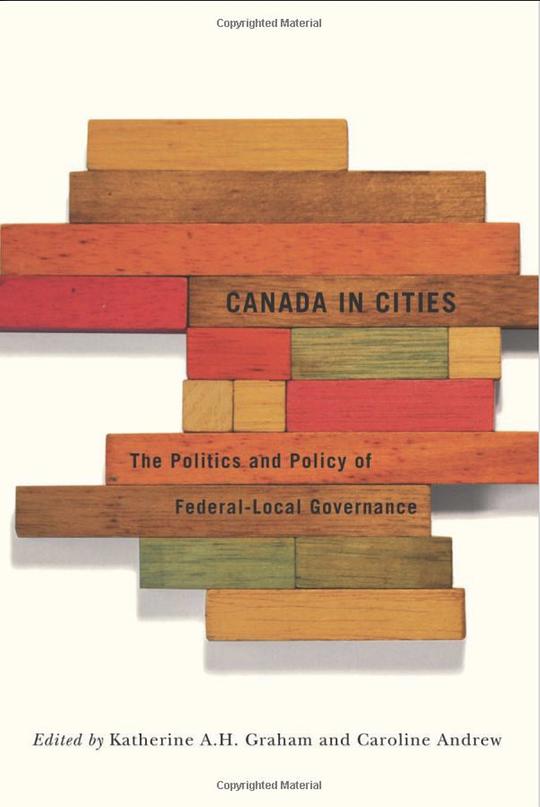
《Canada in Cities》National unity crises crowds out space for urban issues
1
0

梦魇前夜 2023-11-11 13:11:28
The authors, Taylor and Eidelman, in their study "Canadian Political Science and the City," not only grieve the lack of scholarly debates in urban politics, but also point out another characteristic of this literature - its event-oriented focus and preference for normative claims over theoretical innovations. This contention aligns with Simeons criticism of federalism study in Canada, where he argues that the literature is captured by details and mainly stimulated by crises, resulting in a majority of normative studies instead of inference-oriented ones. This correlation can be attributed to the fact that municipal governments are part of the federal system. However, it is strange to find that the literature on municipal politics has evolved in isolation from the broad federalism literature. This ignorance is illogical, considering that most policies from the central government need to be implemented in major cities, and the attitudes and behavior of the majority of voters are shaped by the institutional and economic context of the cities they live in.
The authors have done a comprehensive job of sorting previous studies and providing further suggestions for future research. Among the four lenses provided by the authors, the institutional lens plays a fundamental role. It focuses on institutional structures and public administration at the municipal level, but also includes any institutional setting that deals with the relationship between local governments and their superior governments, Crown agencies, private enterprises, social groups, and other informal rules that regulate the behavior of local governments. The regionalist lens focuses on whether horizontal relationships among municipal governments should be centralized or decentralized. The society-centered lens examines how municipal governance works as an arena of social interests and forces that shape policy agendas. The systemic lens pays attention to how local agencies are constrained or enabled by broader forces or ideas like neoliberalism.
However, there are some aspects that are left out in the authors sorting efforts. First, it is necessary to distinguish between studies in public policy and political science. While policy studies may be more oriented towards crises and recommendations, political science tends to investigate the dynamics of power and resource distribution and make generalizations or inferences. Referring to Simeons criticism, it is evident that the authors would agree that most studies lean towards the public policy side, as they focus on describing idiosyncratic cases.
Secondly, the authors do not mention municipal governance from the Indigenous perspective and the relationship between local governments and Indigenous sovereignty. While the authors acknowledge the uneven differential impacts of politics on different special levels, they easily overlook the fact that Indigenous people are not only affected by policies in a uniform manner, but they also lack equivalent institutional access to policy-making at the municipal level, where their livelihood is influenced by those municipal policies.
In summary, the authors highlight the lack of scholarly debates in urban politics and the event-oriented focus and preference for normative claims in the literature. They provide useful lenses through which to analyze municipal politics, with the institutional lens being particularly important. However, there is a need to distinguish between studies in public policy and political science, as well as to consider municipal governance from an Indigenous perspective.
相关推荐
萤火谷的梦想家
艾莉森•麦吉出生于1960年,是美国《纽约时报》畅销书作家,同时也是大都会州立大学创意写作课的教授。她的作品被翻译成20多种语言并出版,也曾被提名普利策奖,并获得苏斯博士奖金奖、克里斯托弗图书奖、美国 [美]艾莉森•麦吉/[美]克里斯托弗•丹尼斯/绘 2023-03-27 16:50:25鬼马女神捕1·绝密卧底(上)
腹黑凤凰vs毒舌鸡妖——蓝翎:“小姬,跟我去人界吧!”姬十四:“干吗?让人宰了我做小鸡炖蘑菇吗?”蓝翎:“不啊,让妖怪宰了你做小鸡炖蘑菇更气派。”凤凰蓝翎和鸡妖姬十四生活在无忧无虑的灵界。他们的故乡叫 郝天晓 2023-04-17 00:22:47© 2023-2025 百科书库. All Rights Reserved.












发表评价